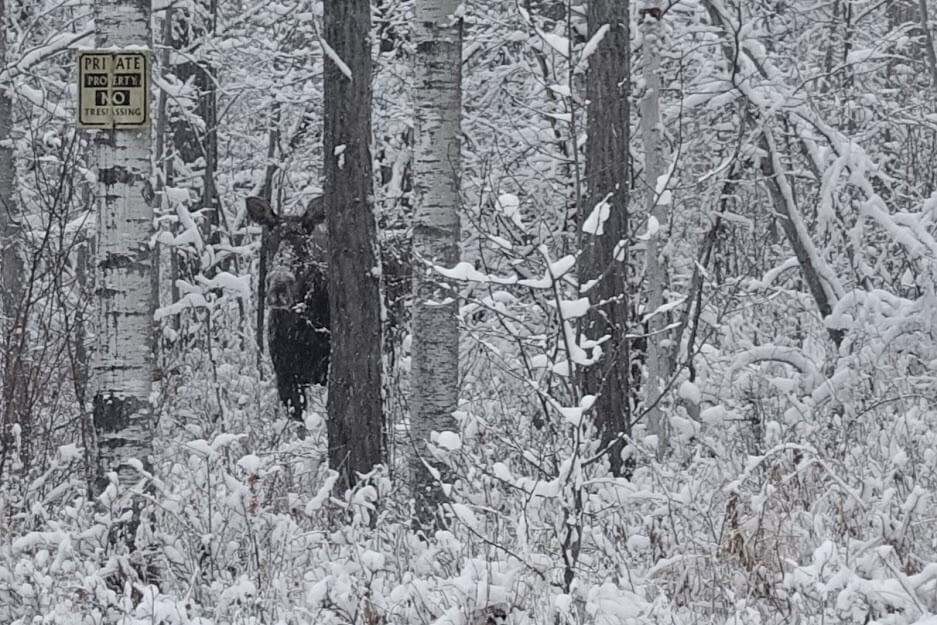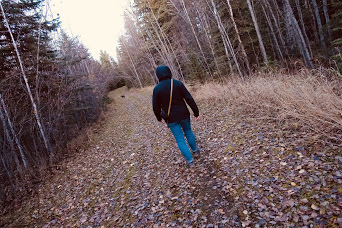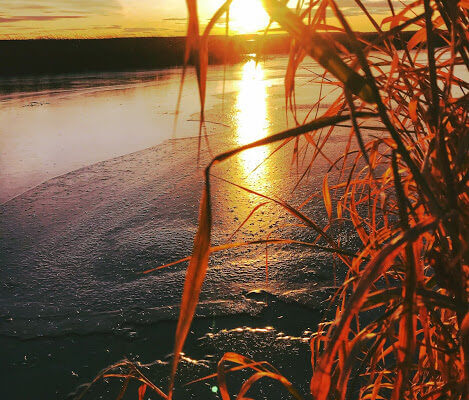Upcoming trips ‑ or not …. Some important things to think about before you plan your next trip
(I have added pictures for your viewing enjoyment that have nothing to do with the below post)

There are many things to review before embarking on your next trip. Below I share a review of the most common considerations, including passports, duh, and an overview of visas, vaccinations, and current disease considerations.
While it can be said that excitement and extreme planning and all kinds of fun stuff go into planning a trip, at this time in history, that is taking on a new look. How fun is it when you pick a destination, buy a guidebook, bookmark all of those great internet sites, buy a planning notebook, and even a new pen for the occasion? And how fun is it to daydream as you go through your drudgery of a job and pretend you are floating on a beautiful, calm blue‑green ocean without a care in the world? Checking out maps and directions, routes to take and restaurants to visit.
Whoa, I am feeling the need to dig out all of my best planning and travel books!
But there are some less than pleasant considerations to take into account as you plan your trip, and sometimes those considerations come up after you have planned and paid for your trip.

Passport Background – Everybody knows this!
All folks today are very familiar with passports and their requirement to pass into new countries. In fact, it has only been since 1941 that passports were required in the U.S. Passports, however, have been around for much longer than that, and, in fact, they are mentioned in the Bible. In the book of Nehimiah, around 450 BC, there is a discussion about papers needed to grant safe passage. Passports are not a new thing and I can guarantee that passports are not novel to any folks reading this. I did think the Bible reference was interesting though.

VISAS
Visas are not a new thing either. They, unfortunately, are going to be getting a lot more common for everyday travelers to consider prior to their trips. At this point, for instance, Canadians can travel to most European countries without a visa for short stays, but by the end of 2021, that is probably going to change. Again, visas are not a new thing. Jump on the internet, type in the country you plan to travel to, and you will be told if you need a visa to enter. Online resources provide good advice as to where to get visas.
Before the internet, however, it was much harder to navigate these particularities as one needed to ask around, consult a professional, or go to our own government and ask questions. Maybe even we had to go to the consulate for the country we wished to visit. Oftentimes, it was very difficult to find the answers too. As is usual with some government departments, one individual doesn’t know what department to go to for certain answers, and so it was, to say the least, rather onerous.
A visa gives you permission to enter a foreign country. Canada’s visa and travel documents can be found here:
https://travel.gc.ca/travelling/documents/visas
Remember that you must have a passport prior to applying for a visa. In every case where I have needed a visa, my passport had to be sent to that country’s foreign representative, often by courier to another city, and a visa was placed into my passport, so it is important to find out visa information well in advance of your travel plans. In some instances, you must buy a visa when you arrive at the location you are going to.
In addition to visa information, the travel.gc.ca travel site listed above gives good information about a lot of travel related questions anyone might have. On the government of Canada’s website, it says: “The Travel Advice and Advisories are the Government of Canada’s official source of destination-specific travel information. They give you important advice to help you to make informed decisions and to travel safely while you are abroad.”

VACCINATIONS
Vaccinations are not a new thing either – controversial, yes, but not new. We all seem to know that vaccinations are required to travel to certain countries. Hepatitis A and B are givens, we now know that we can get vaccinations for traveller diarrhea, thanks to well‑known TV ads. Of course, in Canada we have vaccinations for the flu as well as shingles, and, now, pneumonia. At the time of writing this, March 2020, vaccinations for the flu, shingles and pneumonia are not travel vaccinations. Routinely I have the flu shot, I have had the shingles shot and I plan to start getting the pneumonia shot. I believe that this will help to prepare me for when I might come into contact with these illnesses.
When it comes to vaccinations, it is very wise and necessary to consult with a professional. (I will never give medical advice.) Before travelling, you may need to have a yellow fever card, for instance, to even leave the airport of your destination country. Of course, if you are travelling to environs where the altitude is severe, then altitude sickness is a very real possibility, and you may need something to aid with that transition. Again, it is wise and necessary to consult your doctor and a travel immunization specialist.
The Government of Canada again is an excellent resource: https://travel.gc.ca/travelling/health-safety/vaccines
You would then decide where to get the vaccinations, and in Alberta, that might try Atlas Immunization Services or Travel Health Services. The internet again is an excellent resource for that.

Travel Advisories
Now, we come to the travel advice or advisories that are newer and less known. Right now, with all of the COVID‑19 discussion, I am very sure that most people will be checking the internet to figure out if they should go on their already-paid-for trip. They will be deciding if they should, if possible, postpone that already-paid-for trip, or if they should just stay at home. While this is a personal choice, there are a number of things to take into consideration.
The internet is a great source of information for travel advisories. Again, the Government of Canada has an easy to navigate site for travel considerations. There are cautions ranging from normal to avoid all travel.
Wikipedia describes a travel warning as an official warning statement issued by government agencies. They will advise against travelling to certain locations, and certain governments will rank the country you are looking at in terms of its danger factor. It is wise to check out all of these advisories and heed their warning.
Planned trip advisories
But what if you have a trip planned already, and what if that trip brings you to a location that has had its advisory elevated or pushed up the rank so to speak, and now it is dangerous or not a recommended country to travel to? Again, this is a personal choice. I believe that the government warnings are the best advice out there. They are developed by people in the know, people who have its citizens’ best chances at a successful trip at heart. In fact, they probably have people in the area who are making the rankings and updating them on a regular basis based on the political situation, previous and ongoing problems with tourists in the area, etc.
You may have doubts about the Government’s advisories, but I do believe they provide the most update information. The advice is then something that a traveler can keep in mind.
Right now there are some very contagious diseases in the world that must be taken into consideration prior to travel, specifically COVID‑19. It is so scary. In fact, I have been keeping an eye on it as I have upcoming travel plans in two and a half months, and I am hoping that it dissipates by the time I travel. I am banking on it fizzling out, and become something similar to SARS, which was a very scary illness back in 2002 and it spread to 26 other countries, including Canada. But SARS petered out for a variety of reasons.
It is likely that the COVID‑19 virus will start decreasing as people develop immunity through either infection or vaccination. It is also likely that the virus will spread worldwide, as it already appears to have done. There seems to have been a worldwide effort to stop the spread of this new virus by either travel bans or quarantines.
Tips when traveling on planes
As a review of things to do on an airplane, below I share some tips authored by Dan Pegram, who is a retired Southwest Airlines Pilot and the author of The Adventures of Pop-Pop Airplane, a children’s book, found here: https://www.danpegram.com/
1. Start With a Good Defense – According to the Centers for Disease Control and Prevention (CDC), the common cold, flu and coronavirus spread person-to-person and from contact with infected surfaces and objects. They recommend practicing everyday preventive actions like yearly vaccinations, covering coughs and sneezes and frequent hand washing – with soap and warm water (for at least 15 seconds).
2. Plan Ahead – Airplanes are occupied by thousands of people each week and perfect incubators for germs. Bring along some antibacterial wipes and hand sanitizer. Wipe your seat (if leather), armrests, seatbelt buckles, tray table, headrest and around your seat back pocket. Those seat back pockets were only sanitary right after the seats were installed at the factory and are the ideal place for the previous passenger to put their dirty tissues and germy refuse. Use hand sanitizer after handling emergency information cards, magazines, inflight entertainment screens and overhead bins.
3. Practice Good Hygiene – Although comfortable, refrain from removing shoes and socks to avoid coming in contact with germ laden airplane carpeting and plastic flooring. These surfaces, again, were only sanitary when installed at the factory. The airlines do an admirable job of cleaning aircraft during turns and overnights but only really scratch the surface. Never go into an aircraft bathroom without your shoes on. Be a courteous traveler and aware of any germs you may spread to others when blowing your nose, coughing, or sneezing. Properly dispose of any tissues, napkins and food service items. Refrain from putting personal items or refuse in those seat back pockets.
4. Do Not Travel While Sick – If you are running a fever and know you are sick, please stay at home. In addition to spreading your illness, you run the risk of potentially being hospitalized far away from home. This could prove costly. Clogged ears, for example, from a cold or sinus infection could result in a ruptured eardrum, which is incredibly painful and could take up to six months to heal. Children are especially susceptible to this type of scenario as their eustachian tubes are more difficult to clear on descent.
5. Traveling With Children – Children are naturally curious and learn by touching – seemingly everything. Allowing your children to run around the airport waiting area in bare feet or crawling around on the carpet expose children to millions of very harmful germs. Even though it seems convenient, you’re exposing them unnecessarily. This applies as well after boarding the aircraft. The sanitizing procedures, as described above, create a reasonably clean seating environment for you and your children. Be sure to periodically sanitize their hands especially after a trip to the lavatory. Also, be sure to properly dispose of soiled diapers and wipes.
6. Food Spoilage – The airports have numerous food vendors offering reasonable variety for your enjoyment. A good rule of thumb is to consume any food items you bring onboard within four hours of purchase. Food stored at room temperature will spoil at a much faster rate. Items such as dairy products, deli meat, raw fruits and vegetables, cooked rice and seafood are most susceptible to bacterial growth and spoilage.
7. Stay Hydrated – Inflight aircraft cabin altitudes are generally above 8,000 feet where the humidity is below 20%. This is why dehydration is a common problem with passengers. Purchase an appropriate sized bottle of water at a concession to drink while flying to help maintain proper hydration. Low humidity levels promote nose, eye and skin dryness which welcomes in cold germs as well as promotes fatigue.
8. Use the Overhead Air Conditioner Vent – Using this vent will create a nice flow of cool air and will blow away airborne germs. Be sure to wipe down the nozzle before you adjust it.
9. Be Germ Conscientious – While traveling avoid touching your mouth, eyes and face. Coming in contact with germs on common surfaces is inevitable. However, transferring these germs is preventable with proper awareness.
Adding one or two of the above tips to what you already do will be helpful.
Also, this is something that I recently read and I found that it was very true in my case. Try not to get obsessed with this new virus on social media. Because I have a trip coming up in May out of country, or two and a half months away, I find that I am following every little tidbit on social media, and trying to find out as much as I can about this virus. The article I read was advising, and I thought it was excellent advice, that checking on social media hourly will only cause increased anxiety. I can’t change what is happening worldwide, and the progression of the illness is not going to change that much in 24 hours. The article wisely advised to pick one time a day to check on favourite sites to see what has happened, and not obsessively checking every hour, as I was doing. It’s just not helpful.
Talking about refunds
Tammy Levent, CEO of Elite Travel https://tammylevent.com/elite-travel-wins-2-travvy-awards/ says this:
“First before you even book a trip either online or with a travel professional make sure to ask about cancellation policies. ‘We never book clients in non-refundable hotels.’ Most online bookings are non-refundable. Next get Cancel For Any Reason insurance, this will not cover you medically if you cancel your trip 100 percent. But you can cancel your trip for any reason and get a full refund. If you do add the medical coverage, you will be covered medically at 100 percent and Cancel For Any Reason added, you will get 75 percent back of your money if you cancel for any reason and not a medical reason. When I travel, I get Cancel For Any Reason and medical insurance to cover me if something happens overseas. On average Cancel For Any Reason costs about 130 to 150 per person. [This will be US dollars]
Next, you cannot get any fees waived or cancel fees unless the CDC or World Health says no travel there, then the airlines, hotels etc. are forced to cancel and refund your trip.
You have planned this trip because you want to go, so go. Maybe you will have to change your travel plans and go a little later, I am sure that it will be a lot easier to move your trip plans and get waivers for moving the date over than waivers for a complete cancellation.“
So if you are worried at all, then get Cancel For Any Reason travel insurance. In Canada it must be purchased within 15 to 21 days of your initial trip, and each company that offers it may have a different policy. Good to check out when you are purchasing your travel medical insurance (this insurance is non-negotiable in my opinion).
MasterCard with built in insurance
Use your Mastercard for travel purchases if it has a built in refund policy. Check your credit card for any return features related to travel. A young friend who is presently in Dubai reminded me of this tip. Thank you, beautiful!
Racism cautionary tale
Further to the COVID-19 discussion and travel,
sometimes people get odd ideas, and I just want to highlight what Bailey wrote and
shared with me after she traveled within Canada from the East Coast to
Winnipeg.
“I recently flew home from St. John’s,
Newfoundland, to Winnipeg, Manitoba, and I clearly had a cold. I was that
person on the plane – using Kleenex after Kleenex, sneezing into my elbow, red
nosed and looking worse for wear. No one stopped to ask me when I got sick or
screened me or checked me in any way. I may even have a strain of the
coronavirus, since it is one of the viruses that cause the common cold. Yes,
2019-nCoV is a new strain, but it is part of a larger family of viruses
that already circulate. Why wasn’t I checked and why are people not freaking
out that I might have the coronavirus? Well, part of the reason is that I’m not
Asian, but white. A lot of the panic and media buzz around 2019-nCoV are rooted
in racism and stereotyping of the Chinese community. To be clear, a potential
global pandemic is something that is very valid to worry about and it may be a
very good reason to cancel travel. But it is important to think about what shapes
our fears?”
Further reading – racism
If you are interested in delving further into this subject of racism and the current world fears surrounding both people and the disease, PhD Candidate in Political Science and International Relations Korey Pasch from Queen’s University writes a timely and compelling article: https://theconversation.com/coronavirus-the-latest-disease-to-fuel-mistrust-fear-and-racism-130853

Finally on a personal note
On a final personal note, do I cancel my trip or not? Further consideration is that the trip brings me to a gathering of bloggers which means I will be in close quarters with many people where the transmission of any disease is much easier. Yes, I will continue to keep my plans intact, and I will watch the progression of the disease as it goes along.
I have decided that I will try not to worry about it. If I end up cancelling, I will lose some money, sure, but it’s not the end of the world. This is a piecemeal trip, and one which I did not purchase cancellation insurance. Maybe I will start to look into that in the future, and make that determination that it is necessary given the new state of the world and how things move so quickly from one country to the next, and also the volatility of so many countries at this time in history. I am trying not to be a naysayer, but sometimes the news and internet bring everything so close and hard to avoid.
Yes, I will be continuing to choose to travel. I will be making plans. I will be cautious. I will continue to read and institute best practices. But I will also be wise and plan accordingly.
Safe travels.
I invite any comments, questions, personal experiences …

